I sit at 2:46 in the morning in front of the fire. I work on my laptop. This represents an improvement in my writing life. When I first got the laptop in 2002 (a replacement computer for the 10 year old desktop which was hopelessly out of date), I hoped to break the writing-room habit. That didn’t happen. I plugged the laptop into an outlet in the writing room and there the laptop stayed.
Then I got my big desktop computer. I stored the laptop away, always intending to use it “in any room of the house.” The laptop didn't emerge from the drawer until I needed to take it to Provincetown.
During my stay at Provincetown, I worked exclusively on the laptop, wherever pleased me. That seems to have broken through my mental barrier.
I am thinking tonight about the coming winter, about how the days are getting shorter. It is this time of year that I really love. I have often wondered why. In my Modern Poetry class the other day we were talking about Robert Graves’ “To Juan At Winter Solstice.” That poem set off a long discussion about humans’ need to accept change.
The beautiful thing about seasons is change. In fall and winter, the trees simply shift their emphasis from their leaves to their roots, where the life force continues on. For humans, it is so hard to let go, to let change happen. We are afraid. Some lines from Ingmar Bergman’s The Virgin Spring come to mind: the smoke, when it rises, hovers at the opening in the ceiling. It doesn’t want to leave the house. It doesn’t understand that once it leaves the house that it will have the big, wide sky to live in.
I think about this almost every day. The thought obsesses me. Whitman once wrote in a poem: “Set ope’ the doors, oh soul.” The soul needs a big space to dwell in.
The long, dark winter allows me to feel that space.
Since the change back to regular time, I have felt that surprise of looking out of the window at 5:00 in the evening and seeing darkness. I feel shock, a quickness within. This inner stirring, I know, is my soul yearning to escape the confines of the house I have built for it.
Eliot once wrote:
Teach us to care and not to care
Teach us to sit still.
The paradox of caring and not caring is central to the creative life. The paradox cannot be understood until we learn to sit still. Can one care and not care simultaneously? Yes, and the trick is to not let the seeming contradiction tear you apart.
My experiment with writing haiku is paying greater dividends than I imagined. I set an arbitrary goal to write 100 haiku in a year. I told myself I would not worry whether they were good or bad. Basho said that a haiku is only good so long as it is on the writing desk, anyway. After the haiku is written, one mustn’t dwell on it but look forward to writing the next haiku. I think I needed to be given that kind of freedom.
Writing the haiku poems has led me to writer longer poems and to stay close to my creative life.
I have a secret battle: for some reason, I feel that when I write poetry I am being disloyal to fiction. My education has set a firm line between the two genres. My conscience says to me: You are not a poet. You will never be a poet. You should be working on your novel. You are wasting time by writing all these poems.
And yet I cannot live without poetry, without reading it, without writing it. Poetry speaks to my soul, and when I write it, I am making my soul. It must be true, as has been said by others, that the poem is a dialogue with the self and the novel (or short story) is a dialogue with others. So poems must be filling a need that prose cannot fill. But I persist in punishing myself for loving poetry. I need to work on this.
Poetry cuts deep channels within me. I remember being on the Ohio River and seeing the dredgers. They make sure the water stays deep enough for the boats to get through. They keep the river navigable. Poetry keeps my inner river navigable. Without it, the traffic stops. My imagination gets sluggish and shallow.
Rilke takes a slightly different view, one that delightfully free of self-absorption:
All the things to which I give myself
Grow rich and spend me
I take this to mean that in giving ourselves to poetry, we making our specific fears and desires universal. The collective voice grows rich and strong because of the poet’s excruciating honesty.
Lately, I crave poems. I almost feel like I will die if I can’t read a poem! And reading them makes me want to write them.
Sitting here in front of the fire, I know I need this dark time. As Theodore Roethke wrote: In a dark time, “the eye begins to see.”
Presently, my defining myth is the light in the darkness: Christmas-time, Solstice, festival of lights. When the lights shine and the quiet darkness is all around, I feel peace.
I am no longer a church-goer, but I love hymns, and the hymn that resonates for me now is: “It is well / With my soul.”
When I look at the fire, I see life. I feel life in the warmth it gives off. My spirit is at rest.
“Without Darkness, nothing comes to birth.” --Kali
Subscribe to:
Post Comments (Atom)
Pages
Dreaming
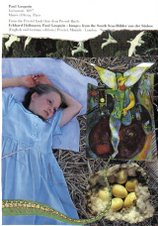
About Me

- Theresa Williams
- Northwest Ohio, United States
- "I was no better than dust, yet you cannot replace me. . . Take the soft dust in your hand--does it stir: does it sing? Has it lips and a heart? Does it open its eyes to the sun? Does it run, does it dream, does it burn with a secret, or tremble In terror of death? Or ache with tremendous decisions?. . ." --Conrad Aiken
Followers
Facebook Badge
Search This Blog
Favorite Lines
My Website
Epistle, by Archibald MacLeish
Visit my Channel at YouTube
Great Artists
www.flickr.com
This is a Flickr badge showing public photos from theresarrt7. Make your own badge here.
Fave Painting: Eden
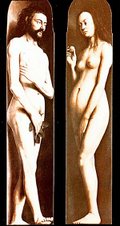
Fave Painting: The Three Ages of Man and Death

by Albrecht Dürer
From the First Chapter
The Secret of Hurricanes : That article in the Waterville Scout said it was Shake- spearean, all that fatalism that guides the Kennedys' lives. The likelihood of untimely death. Recently, another one died in his prime, John-John in an airplane. Not long before that, Bobby's boy. While playing football at high speeds on snow skis. Those Kennedys take some crazy chances. I prefer my own easy ways. Which isn't to say my life hasn't been Shake-spearean. By the time I was sixteen, my life was like the darkened stage at the end of Hamlet or Macbeth. All littered with corpses and treachery.
My Original Artwork: Triptych
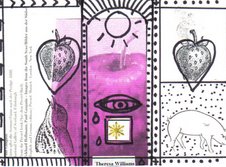
Wishing
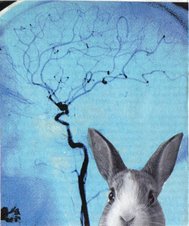
Little Deer
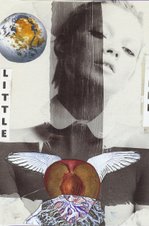
Transformation
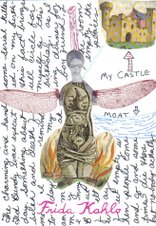
Looking Forward, Looking Back
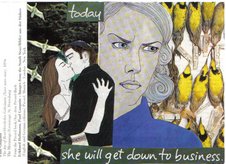
Blog Archive
-
▼
2008
(259)
-
▼
November
(41)
- Without Darkness
- Poem
- Poem
- Poem
- Haiku #83
- Haiku #82
- Haiku #81
- Haiku #80
- Haiku #79
- Haiku #78
- Biscuit Recipe
- "Biscuits"--Revised
- For Those Who Presently Don't Want to Cook
- Haiku #77
- Haiku #76
- Haiku #75
- Haiku #74
- Haiku #73
- Haiku #72
- Haiku #71
- Haiku #70
- Haiku #69
- Haiku #68
- Haiku #67
- Haiku #66
- Haiku #65
- Haiku #64
- Gifts
- Haiku #63
- Haiku #62
- Haiku #61
- Haiku #60
- Haiku #59
- Haiku #58
- Haiku #57
- Haiku #56
- Haiku #55
- Haiku #54
- Haiku #53
- Haiku #52
- Haiku #51
-
▼
November
(41)
CURRENT MOON
Labels
- adolescence (1)
- Airstream (7)
- Alain de Botton (1)
- all nighters (2)
- Allen (1)
- altars (1)
- Angelus Silesius (2)
- animals (1)
- Annie Dillard (1)
- Antonio Machado (2)
- AOL Redux (1)
- April Fool (1)
- Archibald MacLeish (1)
- arts and crafts (55)
- Auden (1)
- awards (2)
- AWP (2)
- Bach (1)
- Basho (5)
- Beauty and the Beast (1)
- birthdays (1)
- blogs (5)
- boats (2)
- body (2)
- books (7)
- bookstores (1)
- Buddha (1)
- Buddha's Little Instruction Book (2)
- butterfly (4)
- buzzard (2)
- Capote (4)
- Carmel (1)
- Carson McCullers (1)
- cats (15)
- Charles Bukowski (1)
- Charles Simic (2)
- Christina Georgina Rossetti (1)
- church (2)
- confession (1)
- Conrad Aiken (1)
- cooking (5)
- crows (1)
- current events (2)
- D. H. Lawrence (3)
- death (6)
- Delmore Schwartz (4)
- detachment (1)
- dogs (7)
- domestic (3)
- dreams (21)
- Edward Munch (4)
- Edward Thomas (1)
- Eliot (3)
- Eliot's Waste Land (2)
- Emerson (2)
- Emily Dickinson (10)
- ephemera (1)
- Esalen (6)
- essay (3)
- Eugene O'Neill (3)
- Ezra Pound (1)
- F. Scott Fitzgerald (1)
- fairy tales (7)
- Fall (16)
- Famous Quotes (16)
- festivals (2)
- fire (5)
- Floreta (1)
- food (1)
- found notes etc. (1)
- found poem (2)
- fragments (86)
- Frida Kahlo (1)
- frogs-toads (4)
- Georg Trakl (1)
- gifts (1)
- Global Warming (1)
- Gluck (1)
- goats (1)
- Goodwill (1)
- Great lines of poetry (2)
- Haibun (15)
- haibun moleskine journal 2010 (2)
- Haiku (390)
- Hamlet (1)
- Hart Crane (4)
- Hayden Carruth (1)
- Henry Miller (1)
- holiday (12)
- Hyman Sobiloff (1)
- Icarus (1)
- ikkyu (5)
- Imagination (7)
- Ingmar Bergman (1)
- insect (2)
- inspiration (1)
- Issa (5)
- iTunes (1)
- Jack Kerouac (1)
- James Agee (2)
- James Dickey (5)
- James Wright (6)
- John Berryman (3)
- Joseph Campbell Meditation (2)
- journaling (1)
- Jung (1)
- Juniper Tree (1)
- Kafka (1)
- Lao Tzu (1)
- letters (1)
- light (1)
- Lorca (1)
- Lorine Niedecker (2)
- love (3)
- Lucille Clifton (1)
- Marco Polo Quarterly (1)
- Marianne Moore (1)
- Modern Poetry (14)
- moon (6)
- movies (20)
- Muriel Stuart (1)
- muse (3)
- music (8)
- Mystic (1)
- mythology (6)
- nature (3)
- New Yorker (2)
- Nietzsche (1)
- Northfork (2)
- November 12 (1)
- October (6)
- original artwork (21)
- original poem (53)
- Our Dog Buddha (6)
- Our Dog Sweet Pea (7)
- Our Yard (6)
- PAD 2009 (29)
- pad 2010 (30)
- Persephone (1)
- personal story (1)
- philosophy (1)
- Phoku (2)
- photographs (15)
- Picasso (2)
- Pilgrim at Tinker Creek (1)
- Pillow Book (5)
- Pinsky (2)
- plays (1)
- poem (11)
- poet-seeker (9)
- poet-seer (6)
- poetry (55)
- politics (1)
- poppies (2)
- presentations (1)
- Provincetown (51)
- Publications (new and forthcoming) (13)
- rain (4)
- Randall Jarrell (1)
- reading (6)
- recipes (1)
- Reciprocity (1)
- Richard Brautigan (3)
- Richard Wilbur (2)
- Rilke (5)
- river (5)
- river novel (1)
- rivers (12)
- Robert Frost (2)
- Robert Rauschenberg (1)
- Robert Sean Leonard (1)
- Robinson Jeffers (1)
- Rollo May (2)
- Rumi (1)
- Ryokan (1)
- Sexton (1)
- short stories (13)
- skeletons (2)
- sleet (1)
- snake (1)
- Snow (24)
- solitude (1)
- spider (2)
- spring (1)
- Stanley Kunitz (1)
- students (2)
- suffering (4)
- suicide (2)
- summer (20)
- Sylvia Plath (2)
- Talking Writing (1)
- Tao (3)
- teaching (32)
- television (4)
- the artist (2)
- The Bridge (3)
- The Letter Project (4)
- The Shining (1)
- Thelma and Louise (1)
- Theodore Roethke (16)
- Thomas Gospel (1)
- Thomas Hardy (1)
- toys (3)
- Transcendentalism (1)
- Trickster (2)
- Trudell (1)
- Ursula LeGuin (1)
- vacation (10)
- Vermont (6)
- Virginia Woolf (1)
- Vonnegut (2)
- Wallace Stevens (1)
- Walt Whitman (8)
- weather (7)
- website (3)
- what I'm reading (2)
- William Blake (2)
- William Butler Yeats (5)
- wind (3)
- wine (2)
- winter (24)
- wood (3)
- Writing (111)
- Zen (1)





4 comments:
What a thought-provoking entry! I have such mixed feelings about this time of year. I love the change, but I've never loved the darkness. Sunlight is my fuel. There is a quiet gravity to dark evenings, though, that encourages my mind to wander. I wonder if I should work to give myself over to that sensation more often.
Smoke has the whole wide open sky....what an image. Glad you pointed that one out.
HAPPY THANKSGIVING!
Joyce
I think haikus can be good beyond the writing desk as well if it abstracts some big thing or phenomenon. I would like to disagree with you on this. You seem to be very much worked up about the size limitation of haiku
I do not disagree with you, Gururaj; I am only expressing my own creative need at this moment. Everybody is at a different place in their writing adventure. For now I need to focus on simply writing and moving on to the next thing. I tend to hold onto things too much; this is limiting. The idea of non-attachment to what I am writing makes me feel free.
Post a Comment